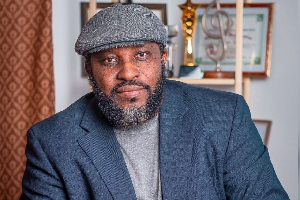Former Governors of the Bank of Ghana (BoG), Dr. Henry Kofi Wampah and Dr Abdul Nashriu Issahaku, saw the challenges facing the banking sector in Ghana when they were in office but failed to address the challenges, a financial analyst, Mr Joe Jackson, has said.
Mr Jackson said it had to take a bold and decisive Governor Ernest Addison to take the bull by the horn to deal with the situation.
Mr Jackson who is also the Chief Operations Officer at Dalex Finance said these in reaction to the objection raised against the re-appointment of Dr Addison as the Governor, by the Alliance for Social Equity and Public Accountability (ASEPA).
ASEPA has said it will petition the President to drop Sr Addison as the Governor.
In a statement by its Executive Director, Mr. Mensah Thompson, on Tuesday, 2 February 2021, ASEPA said “Dr. Addison, who served as Governor of the central bank between 2017 and 2021, was at the centre of the reckless and illegal collapse of some banks and financial institutions”.
In dismissing ASEPA’s claim, Mr Jackson told Johnnie Hughes on 3FM Tuesday February 2 that Dr Addison’s re-appointment is good news because of the steps the took to tackle the rot in the banking sector, something he said, Dr Addison’s predecessors could not do in spite of the facts available to them.
“This is the governor who was bold and courageous. This is the governor who took the responsibility for the financial cleanup that the predecessors had been running away from.
“Successive governors Dr. Henry Kofi Wampah and Dr. Abdul Nashiru Issahaku knew the extent of the rot in the system but didn’t do anything about it.
“You may say Addison was forced into it but he took responsibility. You may disagree with some of the events but you can’t disagree with his courage.
“Under his watch the cedi has been stable. Between 2017 and 2020 the annual depreciation is 8.40 per cent. Do you know what it was before 2013 and 2016? It was 22.24 per cent, almost three times. That you can’t give a dog a bad name and hang it. When things are good we have to give him credits.”
“You can’t argue that the cleanup was necessary, you can’t argue about the fact that the cleanup was done and we needed a bold and stubborn governor to carry it out.”
He added “Let’s give him some credits. If there is anything I will the Governor for on his balance sheets, it is the fact that he has not done enough to recover that huge outlay of funds from the perpetrators of the financial sector mess. I am one of the people who have always been screaming that people must be held accountable, we must recover the money, the recovery has been horrendous.”
Meanwhile, the former Finance Minister Ken Ofori-Atta who has been re-designated to the same position by President Akufo-Addo in his second term pending approval by Parliament, had said the government would not hesitate to step in to tackle any challenge that may show its head in the banking sector.
He told TV3’s Etornam Sey in an exclusive interview on Monday, October 26, 2020, that the financial sector is the heartbeat of every economy globally.
A weak financial sector, he said, will have dire consequences for the economy and its people, a situation that demands that central authorities step in swiftly to address.
Therefore, he said, the Government of Ghana will act quickly to address any challenges that may emerge in the sector again after the recent cleanup exercise.
The Bank Ghana with support from the Finance Ministry swept through the financial sector of the economy between the period 2017 and 2019.
The central bank first started by revising the minimum paid-up capital for existing banks and new entrants.
According to the regulator, this was to test the viability of the banks.
The banks that were unable to meet this new requirement were either merged or collapsed.
Following this action, some nine local banks, 23 savings & loans companies, 347 microfinance institutions, 39 finance houses and 53 fund management companies closed down during the exercise.
In total, the government spent GH¢23billion to undertake this exercise
UniBank, The Sovereign Bank, The Beige Bank, Premium Bank, The Royal Bank, Heritage Bank, Construction Bank, UT Bank, Capital Bank all collapsed.
Mr Ofori-Atta said “Once you have the problem, you have to solve it because the financial architecture is the (basis) for any development.
“So whether we like or not we had to do that. Now that we have done that we move ahead.”
Asked whether if the situation presents itself the government will do it again in the same manner, he answered “You meet problems as a government that is what they elected you for and so you solve it.
“And then you begin by commissioning this to give people the sense of hope for the future to say this thing can be done, and they have faith in you so lets us go with them.
“If the engine is not functioning you can’t build on top of that so you had to solve the problem.
“Is there a way you improve on what you are doing? Of course yes there is always a way to do that but fundamentally was the approach necessary, no question about that.”
Business News of Thursday, 4 February 2021
Source: 3news.com
Wampah, Issahaku failed Ghanaians for not tackling banking sector mess – Jackson
Entertainment












